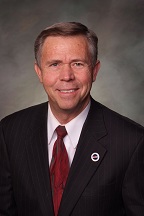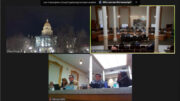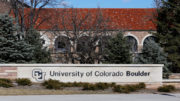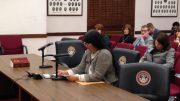By Jeffrey A. Roberts
CFOIC Executive Director
With possible recounts no longer going forward in three counties, the 2014 election is essentially in the books. But a question lingers: Should county canvass boards, those groups of registered voters appointed to certify election results, be subject to Colorado’s Sunshine Law?
In 2012, a district court judge in Douglas County determined that canvass boards are not “local public bodies” covered by the open-meetings statute. State Sen. Kevin Lundberg said that ruling strikes him as “nuts,” and he is considering legislation in 2015 to rectify the matter.
“How a canvass board is not a public entity is beyond me,” the Berthoud Republican said. “It makes sense to clarify what I thought would be obvious. These are not individuals who are doing this on their own. They are individuals fulfilling a statutory function of the election process.”
Members of county canvass boards typically are designated by local political parties. Their open-meetings status came up earlier this week when Gary Mikes, chairman of the Adams County canvass board, tried to reschedule a meeting about a possible recount because the meeting had not been properly noticed, as the Sunshine Law would require. Mikes received an email from Secretary of State Scott Gessler, urging him to hold the meeting as soon as possible because of a statutory recount deadline. Gessler’s email noted the board’s status as “not a public body” and, therefore, not subject to the 24-hour notice requirement.
Mikes, who is also chairman of the Adams County Republican Party, then abandoned his request for a recount after he was told he would not get the information he thought was necessary to check voter signatures for improperly cast ballots. Mikes said he wanted the canvass board to be considered a public body for two reasons: 1) the meetings would be recorded “for transparency purposes” and 2) canvass board members could call on the county for legal help if someone sued over their findings. Otherwise, they couldn’t afford to defend such a case on their own.
“I still contend that we are a public body doing a public service,” said Mikes, who now plans to request voted ballots under the Colorado Open Records Act.
The judge in the 2012 court case ruled that a canvass board does not meet the definition of a local public body because it lacks a policy-making or rule-making function. But CFOIC President Steve Zansberg, a media-law attorney, noted that entities covered by the Open Meetings Law include “any board, committee, commission, authority, or other advisory, policy-making, rule-making, or formally constituted body of any political subdivision of the state.”
There is no question that a canvass board is a “formally constituted body” of a county, Zansberg said.
In the 2012 case, the Douglas County commissioners petitioned the district court for a ruling on whether elections integrity activist Marilyn Marks was entitled to view the record of a privately held canvass board meeting. Marks had been designated by an unsuccessful House candidate to observe a recount and had lodged complaints about the process.
Also in 2012, some members of the canvass board in Boulder County battled the county’s election coordinator over whether that board should act as a public body by recording its meetings and inviting the news media to attend. The elections coordinator told the board that its meetings were not public.
“To say that that we can count the ballots in the dark is anathema to our whole system of self-governance,” said Marks, who has urged Lundberg to consider legislation. “I think it’s an important question even though it’s probably arcane to most people.”
Lundberg said the open-meetings provision could be part of a bigger elections bill to correct what he sees as problems created by the Colorado laws that established the all-mail ballot system and same-day voter registration.
Donetta Davidson, executive director of the Colorado County Clerks Association, said she wants to see the details of Lundberg’s proposal before commenting on it.
Follow the Colorado Freedom of Information Coalition on Twitter @CoFOIC. Like CFOIC’s Facebook page. Do you appreciate the information and resources provided by CFOIC? Please consider making a tax-deductible donation.





